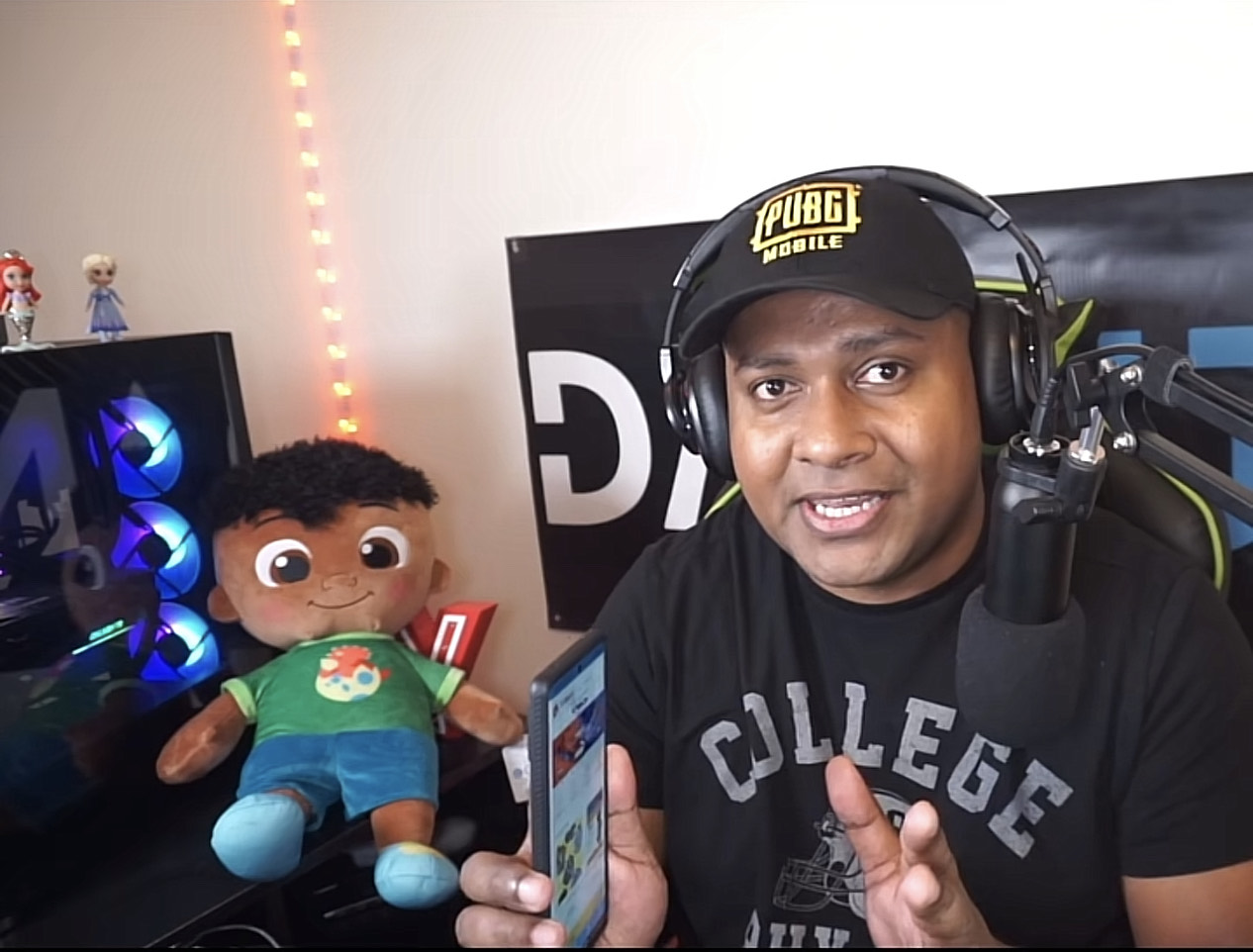
Fiji-based Taniela Qalilawa is a professional content creator and online gamer known as Dan Fiji. Picture: SUPPLIED/DAN FIJI
By EMA GANIVATU
ESPORTS can be defined as playing online video games at competitive levels, locally and internationally. Esports or competitive video games played on platforms and computers, is becoming a huge trend in Fiji and the Pacific region.
It is expected to increase as a result of improved internet connectivity and games, offering great entertainment for individuals of all ages, and also stimulating the economy.
At the 2019 FBC Tech Trade Show, Sidharth Prakash, a digital marketing specialist, shared there was a huge gaming community in Fiji and this was a market that companies such as Vodafone Fiji wanted to tap into.
As competitive video games continue to permeate popular culture, investors, businesses, media outlets, and consumers worldwide are monitoring the development of esports. The social aspect of live streaming and gameplay is a major reason esports have reached such heights.
Fans can interact directly with players and teams through video game-specific streaming services like Facebook and YouTube Gaming, while more widely used social networks have fostered these relationships.
Taniela Qalilawa, is a full-time content creator, gamer, and live streamer based in Fiji. On Facebook, people know him as the famous ‘Dan Fiji the gamer’, or ‘Dan Fiji the TikToker’.
“Online gaming is the new era of gaming where gamers can play with other players from around the world,” he shared with Wansolwara.
“It has redefined gaming and the social aspect of gaming. PUBG, WOW, League of Legends, Call of Duty, to name a few, are all online games.
“Esports has allowed people from different countries and backgrounds to meet and bond over the game. It’s now more than just a game, just because of the social component that is now possible because games can be played online.”
Most Pacific Island gamers, Qalilawa said, took part in Call of Duty Mobile or PUBG Mobile. Those were the two main games in the region. He said those games were well-developed and could be played on almost any smart mobile device.
“I am the first Fijian in history to partner with a mega gaming franchise. PUBG Mobile is one of the most downloaded and top-grossing mobile games to date with over one billion downloads,” Qalilawa said.
Of the over 50 million daily active players worldwide, there are currently only 78 PUBG Mobile VIP members. Members of this elite program are gaming content creators that are handpicked
by PUBG Mobile to be game ambassadors. And Qalilawa is one of them.
“Therefore, it is only right that I use my platform and reach back to my community whenever I can and whenever it is necessary,” he said.
“In terms of competition, it is similar to any competitive sport. There will only be one winner. The game will either make you a bitter person or a better person.
“However, in the end, I hope that people will keep in mind that it’s just a game and they can always restart it.”
Just like traditional professional sports, esports teams have owners, franchises, endorsement deals, cash prizes from tournament winnings, and a lot more— contributing to their annual revenue and total valuation.
Esports gained popularity a few years ago and gained momentum, particularly during the COVID-19 pandemic. Players of varying ages from the Pacific and around the globe took part.
Ratu William Turagakula, a representative from Fiji Opens Call of Duty Mobile group, said the team comprises 16 members. He said they hosted esports competitions and invited Fiji-based and international teams to participate.
“I handle the graphic designs for the promotional posters for the competition and everyone reviews it before launching the tournament.
“Our founder draws out the format of the tournament and the remaining members are to host. After every match, we collect data and update the scoreboard and let our participants see the results.
“That is how we work together to organise online competitive games,” Turagakula said.
Online gaming provides many benefits. Unfortunately, it also comes with risks. Fiji-based COD Mobile gamer Jonetani Suguturaga, said a positive effect of gaming include family bonding when members of a family engage in an online game for fun.
“Online gamers can get money out of it by live-streaming their online game or posting tutorial videos of online gaming or some tips about certain online gaming via YouTube,” he said.
“The negative effects can include mental health problems and anti-social behaviour. Some people can play online games until late night or even the next morning without proper sleep.
“There are some games that are gruesome and depict brutality, nudity, disturbing imagery, and vulgar language.”
Esports, which are video games played in competition on computers and gaming systems, in accordance with sources in the industry, may become a major trend in the region soon.
“Playing online games is a good pastime. At the end of the day, it’s always good to play from time to time, get your mind off work or school, and just have good fun,” said Dan Fiji.
The Pacific has a greater opportunity to play more internet-based games, which experts say could help in the growth of essential skills like teamwork and communication in young people.